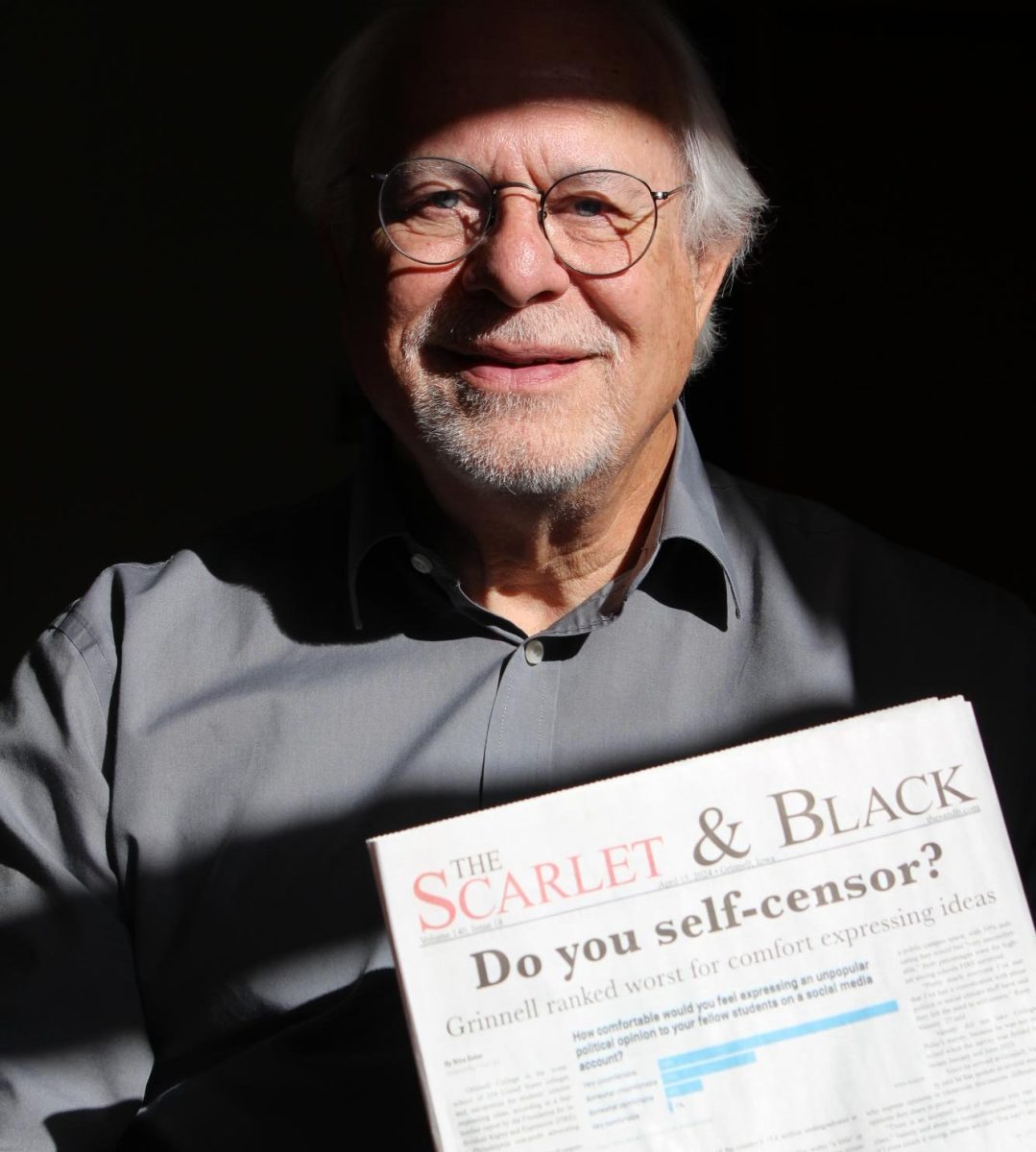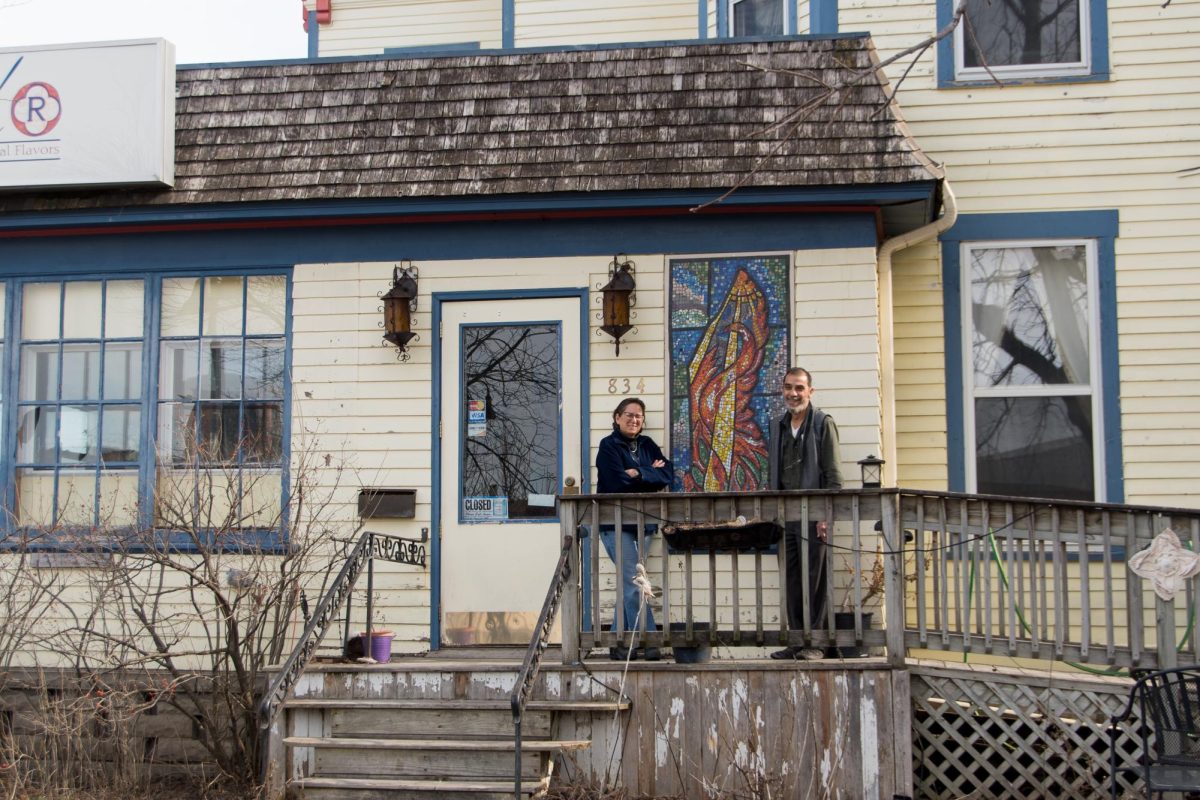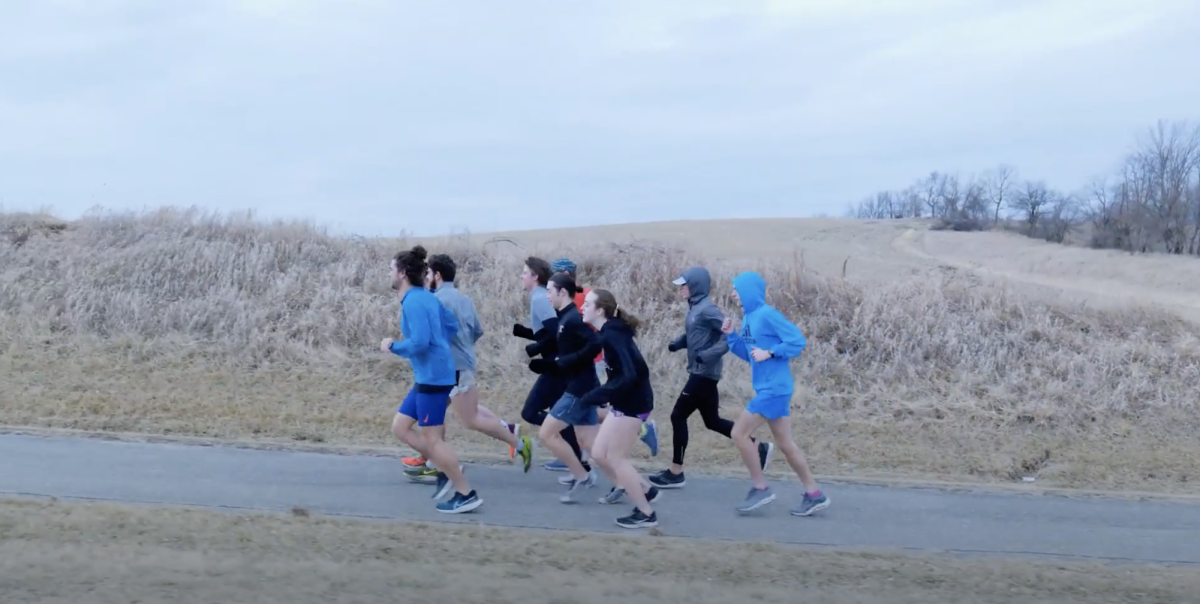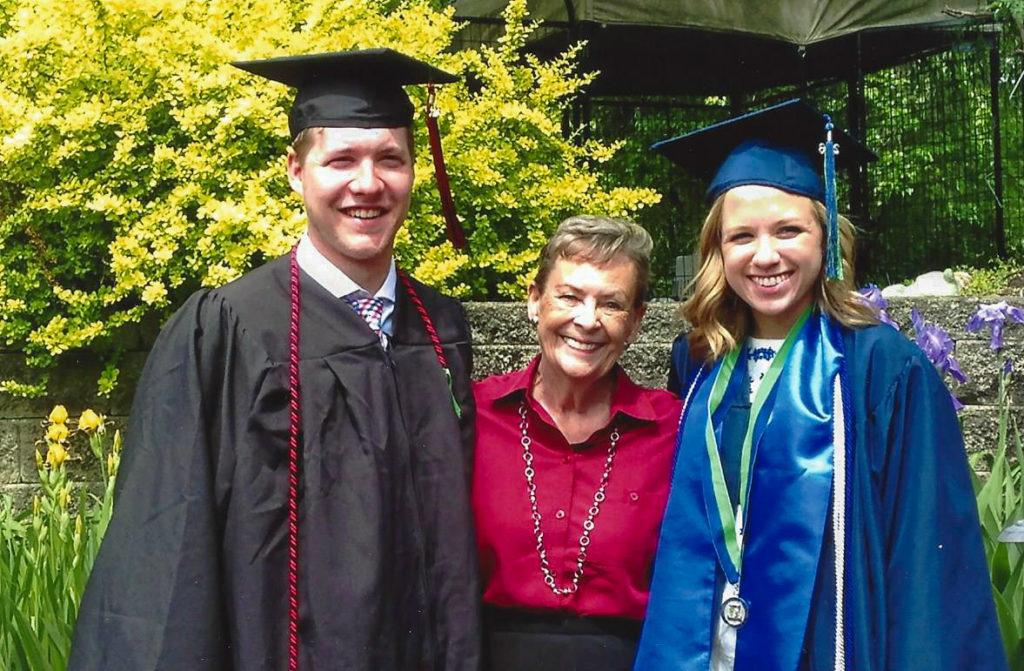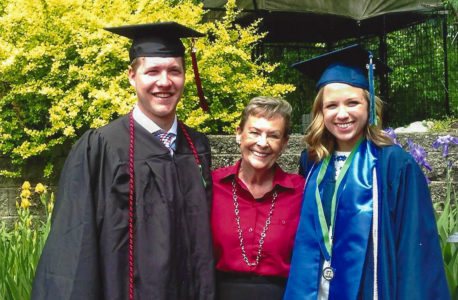
It is not every day at Grinnell that one has the opportunity to learn about a past Grinnell College, a time before the JRC or the Bear had been built and when the school still had horse stables on campus. Students can read about older eras in yellowed issues of the Grinnell Magazine or other publications in the Burling archives, but sometimes the best way is to hear it directly from the source.
For Judith Darrh ’62, an art major, the early 60’s were a time of tumult, rapid cultural change and the last of the “innocent generation,” as the Cold War and protests against the Vietnam War were just coming into focus. Beyond the buildings that didn’t exist, the campus’s trees were almost wiped out: caught in the throes of Dutch Elm disease, the campus was relatively bare. “What you see today is 55 years of regrowth,” Darrh said.
One of the most significant differences, Darrh noted, was the campus culture. For instance, there were many forms of hazing, which were almost always perpetrated by upperclassmen onto incoming underclassmen.
“You dodged upperclassmen as much as you could because you didn’t want to be forced to sing a song that you hadn’t learned the lyrics to yet,” she said, referring to “Sons of Old Grinnell.” “There were these silly little red and black beanies that you were required to wear for two weeks. If you didn’t have your beanie on, you had to sing the song.”
Sometimes, however, the hazing got more violent and physical.
“I guess the biggest political issue then was this protest to Washington, and the new students coming were coming in with long hair, just on the cusp of the 70’s,” she recalled. “Some of the upperclassmen would tackle them and shave their heads.”
Dating was regulated by numerous taboos, as was staying out late and failing to make curfew, especially for the women of the College.
“Grinnell has never been conservative, but as far as our attitudes to stuff, it was a big deal when they allowed us to be in a boy’s room or a boy to be a girl’s room on a Sunday afternoon — but the door had to be open,” she said.
Darrh recalled a time when she appeared in a yearbook picture with her boyfriend in his room, which she was sure would have shocked the conservative Dean of Women, Evelyn Gardner. Gardner, whom Darrh described as “straight out of the Victorian Era,” required the incoming first-year women to be in their rooms by eight o’clock at night for the first two weeks of school, and then by 10 o’clock for the rest of the school year. Students who stayed out after hours were locked out and made to appear before Gardner the next day.
“Upperclassmen would come to check and make sure everyone was in their room, except on Saturday, [when you had] until midnight,” Darrh recalled. “They were very strict about separating males from females. Males were on North, and females on South.”
Campus geography, in many respects, was determined by these social boundaries. Darrh recalled that the student union building was a converted World War II military barracks, which was nothing more than a “snack bar, a ping pong table, a jukebox, and a space to dance.” Just as Burling’s higher floors indicate less noise, the different levels of the student union building were associated with greater romantic pursuits, or “necking,” as they called it back then.
“Upstairs, there were smaller rooms, … and if you snuck upstairs, you meant business,” Darrh said with a chuckle.
Although Grinnell had moved past the sex-specific walkways of the early 1900’s, campus dating was still very much defined by strict traditions. Upperclassmen men would buy photos of the younger years and look through it for girls to date. In an effort to find a girlfriend, North campus men would often recruit their entire hall to serenade a girl from South Campus, not always successfully.
Darrh mentioned that on occasion, she would feel trapped by these codes and desperate to escape this degree of gender separation, a sentiment that was common amongst her female friends.
“Walking the loggia, I would feel like I was in prison. Just absolutely frantic, wanting to escape this jail that I was in,” she said. “A lot of the girls figured out ways to go out the windows, I was just never brave enough to do it.”
But Darrh eventually found love. After graduation, Darrh met Roy Simpson ’60, an economics major whose roommate was dating Darrh’s roommate at the time. After their respective roommates got married, Darrh and Simpson were married for 23 years, until they got divorced.
“[Roy] passed away in April, [but we had] remained good friends despite the divorce,” Darrh said.
Although none of their children attended Grinnell, Darrh’s grandson Tyler Anderson ’16 graduated from the College with a degree in psychology. Darrh noted that upon revisiting the College for her grandson’s graduation, she was awed by the changes she saw at Grinnell.
“We organized constitutional convention[s] trying to get the College to go to co-ed dorms,” Darrh said. “They had a stable, and people could board their horses there. Some of the kids had their horses there at the College. And there were no cars — the College just had a couple of cars that you could check out if you needed to see a doctor in Des Moines.”
Through the ups and downs, Darrh concluded that her time at Grinnell provided some of her best memories, and advised current Grinnellians to take it slow and enjoy the ride.
“Treasure your moments. It all goes so fast: it’s here today and it’s gone tomorrow,” she said. “Life really does speed by. I have friends, lifetime friends that I made at Grinnell, and it’s a real gift.”










































